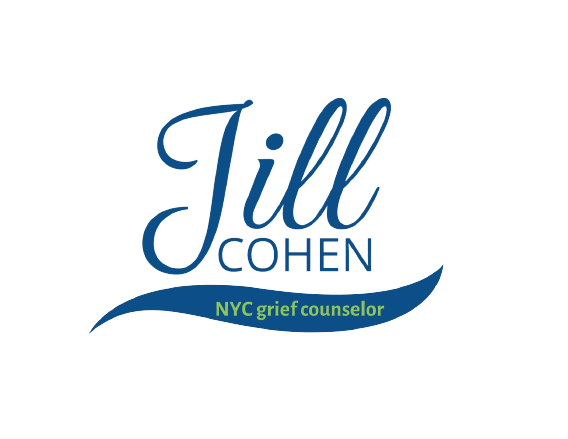What You Know about the “Five Stages of Grief” is Wrong
By Dr. Abhishek Allam, Psychiatrist
6 Minute Read
Stages of Grief and How It Affects the Griever
At some point in our lives, most of us will experience intense emotional grief from losing a loved one. Bereavement is normal and a necessary part of processing deep loss. However, what many people don’t realize is that overcoming grief does not occur in neat, linear stages.
5 Stages of Grief
The “five stages of grief” theory was popularized in 1969 by Dr. Elizabeth Kubler-Ross, a Swiss-American psychologist who wrote the book On Death and Dying.
Kubler-Ross came up with the five stages of grief: denial, anger, bargaining, depression, and acceptance, which are widely referred to as the proper way to overcome intense loss.
Who They Were Written For
Ironically, Kubler-Ross never intended for these five stages to apply to those who lost a loved one; instead, the process was designed for the patients themselves upon learning they had a terminal illness, or that their death was imminent.
Still, the general public embraced these stages and applied them to all forms of loss, which has vastly misconstrued the understanding of grief and how humans cope.
How Does Grief Really Affect Us?
Grief is a deeply complex and personal process that affects everyone differently. Humans like having routine and structure, so it’s not surprising that people grasp on to the five stages of grief as a way to cope. If we simply follow the steps, we can overcome grief, right?
But, research shows that grief is not so simple.
We may go through one stage or multiple.
We might add stages, or repeat them.
We can take months or years to get through one stage, and a few days to get through the next.
The reality is that grief is a roller coaster of emotions that do not follow a linear process, because everyone has different predispositions, personalities, and life experiences that impact how they cope with loss.
When we assume we need to go through the five stages of grief to overcome loss, we are forcing ourselves to follow a pattern that may be unnatural. This can cause feelings of guilt and shame, as we think we are not doing good enough.
For example, someone may take months to get through the denial phase. When they move on towards acceptance, they may revert back to denial as the feelings become too intense. When we expect ourselves to follow a predictable path, we put too much pressure on ourselves and this ultimately hurts our mental health.
What Are the Physical and Emotional Tolls of Grief?
Grief is a very real feeling that impacts us on psychological and physiological levels. After a major loss, studies show that up to a third of individuals directly affected will suffer serious consequences to their mental or physical health, or both.
Physical Complications
These include impairment of the immune system, increased mortality from heart disease (this is especially true for elderly widows), increased adrenocortical activity (regulates blood sodium levels), and psychosomatic disorders.
Major loss can also cause mental health conditions including anxiety, depression, and panic disorders. In some cases, this can lead to substance abuse.
Mental Health Check
Over time, intense feelings of grief tend to lessen and the body learns how to adapt. However, it’s important to regularly check on your mental health or that of someone you know has experienced loss.
Finding resources or treatment centers that specialize in working with individuals who may be struggling to cope with loss could help save their life.
How to Cope With Losing a Loved One
Positive Support System
Most people will recover from loss on their own as time goes by. People with a positive support system and healthy lifestyle habits (nutrition, sleep, exercise) tend to process in a more effective manner.
However, grief can still shake even the healthiest, happiest, most successful people to their core. It is an unpredictable and chaotic feeling that many people can’t prepare for.
Be Patient
Most importantly, it’s important not to rush acceptance. Acute grief typically lasts a few months, but after that it could take much longer to fully come to a place of acceptance. Or, it could happen relatively quickly.
There is no “normal” time period for grief.
The process of “moving forward” takes time, but there are healthy ways to cope that can help you heal:
Talk about your grief with friends and other loved ones.
Prioritize self-care, so you can stay focused and calm.
Try to avoid making major decisions or being involved in stressful situations right away.
Keep a journal to write down thoughts and take time for yourself.
Care for others who have also been affected by this loss. You can find common ground and mutual support.
Celebrate the lives of your friends and family and find gratitude in everyday moments.
Plan ahead for holidays and anniversaries knowing they may be difficult times of the year. You can set aside time to remember your loved one.
See a trained grief counselor or psychologist who can help you build resilience and offer healthy coping strategies.
When you take the time you need and give yourself some grace in the process, instead of forcing yourself to come to a place of acceptance, you’ll process your grief in a more natural, healthy way.
Dr. Allam graduated from Sri Siddhartha Medical College, India in 2014. He practiced medicine in India for 2 years involving working in Psychiatry hospital settings- both outpatient and in-patient settings as a junior doctor. He then moved to the United States in 2016 and has worked at the University of Arizona, Tucson in the last 5 years in Psychiatry Clinical research where his work mainly involved Pharmacological clinical trials for treatment of depression in adults and children. He is also trained and delivered evidence-based psychotherapy to Breast cancer patients and is an active research scholar." Writer and medical reviewer for Sunshine Behavioral Health.




